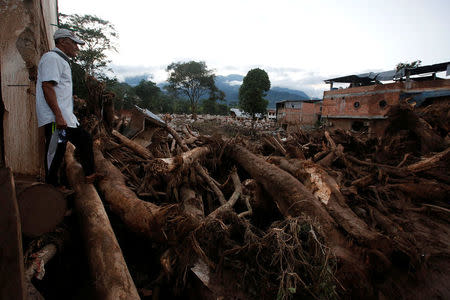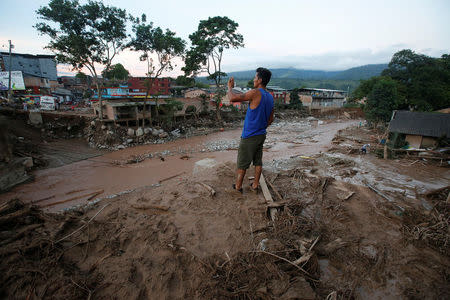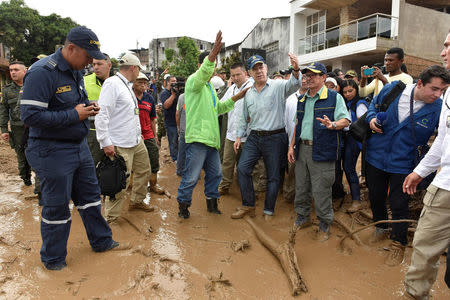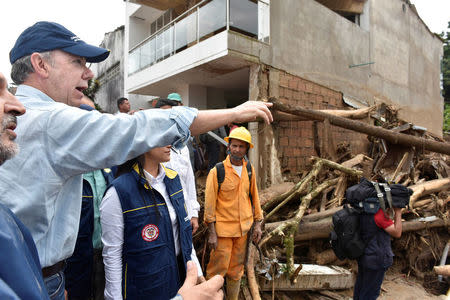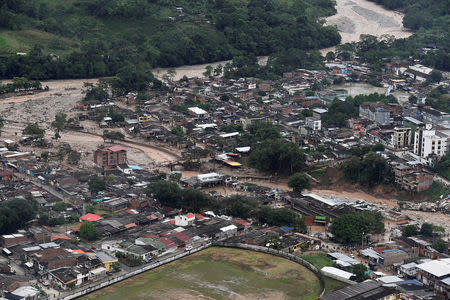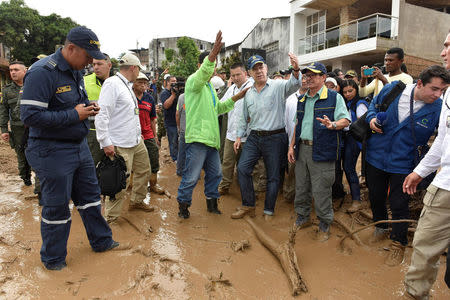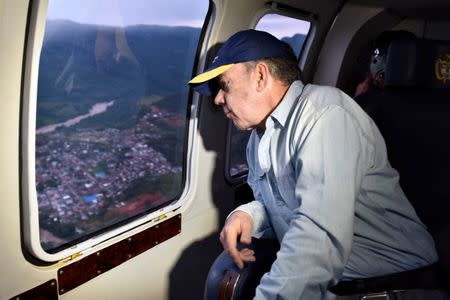Colombia landslide kills 154 on city outskirts, scores injured
By Julia Symmes Cobb and Nelson Bocanegra
BOGOTA (Reuters) - A landslide in Colombia's southwestern border province of Putumayo sent mud and debris crashing onto houses overnight, killing at least 154 people and injuring scores, officials said on Saturday.
Heavy rains caused several rivers to overflow, pushing sediment and rocks onto buildings and roads in the provincial capital of Mocoa and immobilizing cars in several feet of mud.
Colombian President Juan Manuel Santos flew to Mocoa, population 345,000, to oversee rescue efforts on the city outskirts and speak with affected families.
"We will do everything possible to help them," Santos said after confirming the death toll. "It breaks my heart."
Officials were working to determine the number of missing, Santos said. Nearly 200 people were injured, the defense ministry said, and more than 1,100 soldiers and police officers were called in to dig people out.
For more news videos visit Yahoo View, available now on iOS and Android.
"We have sent a team of 150 people to make our response effective and machinery began work immediately," Carlos Ivan Marquez, head of the national disaster unit, said in a statement.
Even in a country where heavy rains, a mountainous landscape and informal construction of homes combine to make landslides a common occurrence, the scale of the Mocoa disaster was daunting. By comparison, a 2015 landslide killed nearly 80 people in Salgar, Antioquia.
"It's a big area," Mocoa Mayor Jose Antonio Castro, who lost his house, told Caracol radio on Saturday. "A big portion of the many houses were just taken by the avalanche."
He said that people were warned ahead of time and many were able to get out, but several neighborhoods and two bridges had been destroyed.
Photos posted on Twitter by the air force showed neighborhood streets filled with mud and damaged houses, while videos on social media showed residents searching for survivors in the debris and struggling to move through waist-high water during the night.
(Reporting by Julia Symmes Cobb and Nelson Bocanegra; Editing by Bill Trott and Mary Milliken)

